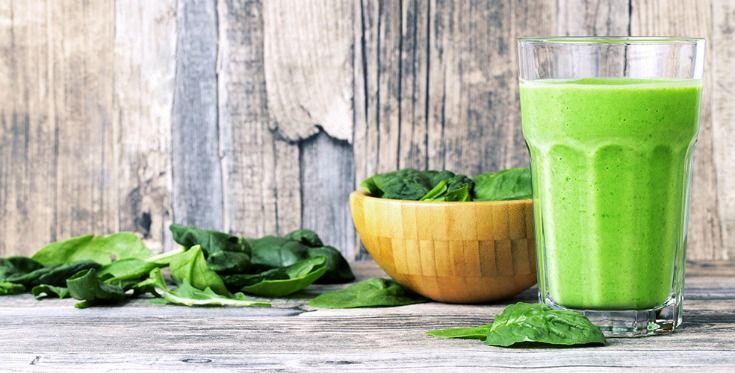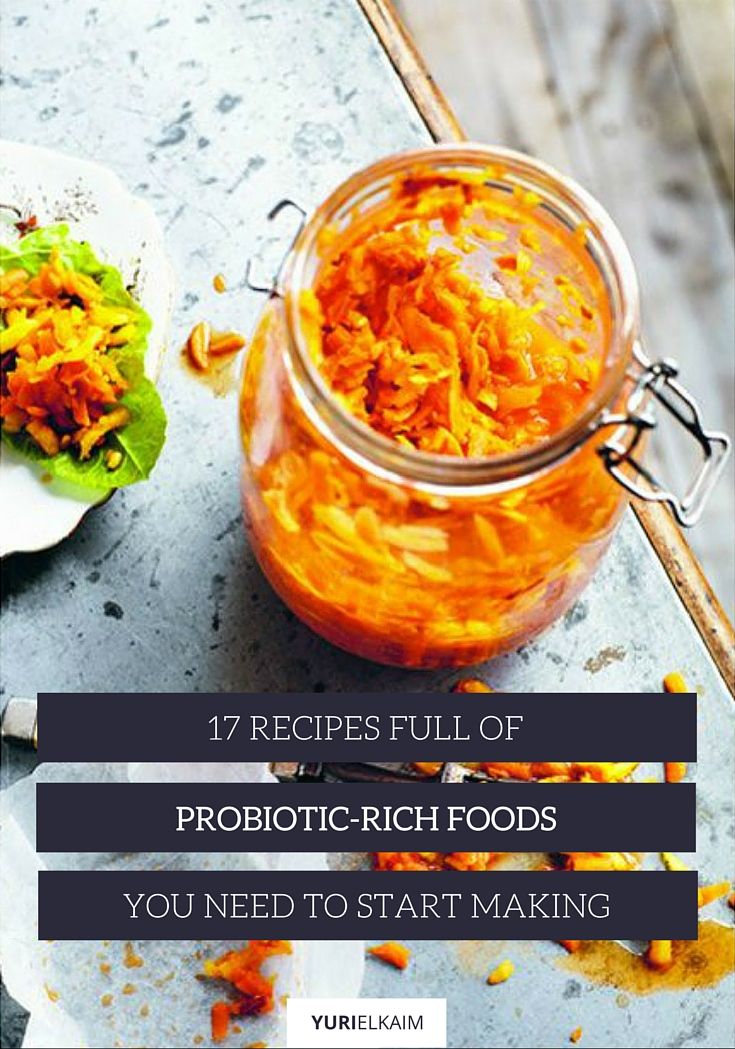In this article
Having bad breath isn’t exactly a roundtable topic (well, maybe it is if you’re a health professional), but it’s a common problem that many of us suffer from – even if we’d rather not discuss it.
And while bad breath (also known as halitosis) can make us feel embarrassed, it’s nothing to be ashamed of.
In fact, there are several natural remedies and natural cures for bad breath that actually work, so that you’ll never be left feeling self-conscious again.
Like other health conditions, bad breath carries a bit of a stigma around it.
In the past, it’s been assumed that if a person has bad breath, they also have poor dental hygiene. But that simply isn’t the case.
Like any health symptom, bad breath can indicate a deeper underlying issue. Since your mouth is part of your upper GI tract, the odor you’re breathing out is not just linked to the your oral hygiene, but also to the health of your gut.
Whether you suffer from occasional bad breath or chronic halitosis with an offensive smell (don’t worry – we won’t tell), here are a few common causes and natural cures for bad breath to help eradicate odor-causing bacteria for good.
What Causes Bad Breath?
Now, there’s no denying that odor-causing bacteria can result from poor dental hygiene. It’s important to brush your teeth after meals and floss daily to prevent the buildup of food from lingering in your mouth and attracting bacteria.
But even those who have impeccable oral hygiene can still suffer from bad breath.
Here are a few causes of bad breath that have nothing to do with oral hygiene:
A Weakened Digestive System
Your upper GI tract includes your stomach, your esophagus, and your mouth. So it only makes sense that if your digestive system isn’t functioning optimally (which means food isn’t being properly digested), there’s a chance that odor-causing bacteria can linger on the undigested food in your system.
This will then allow a “bad breath” smell to escape from your mouth.
Sure, the cause of bad breath isn’t the prettiest picture to paint.
But by understanding how halitosis occurs from weakened digestion, you can easily learn how to apply natural remedies to eliminate bad breath. A weakened digestive system can result from several different factors, such as frequent antibiotic use, a diet high in refined sugar and processed foods, and/or frequent alcohol consumption and chronic stress.
[Related: How to Improve Your Digestion Power (8 Essential Steps)]
A Diet High in Animal Products
One of the most common dietary misconceptions today is that we require large amounts of protein from animal products to be healthy – and that’s simply not true.
In fact, all plant foods including fruits and vegetables contain amino acids, but we tend to overdo it with animal protein instead, especially when we want to gain muscle.
There are a few reasons why the excess consumption of animal protein is linked to bad breath.
First off, animal products take more time for the body to digest. This means odor-causing unfriendly bacteria may have more time to ferment the undigested food in your GI tract before it moves through your system.
Animal protein is also acidifying to the body, which further promotes the growth of bad bacteria in your digestive system (1).
Now, there’s nothing wrong with consuming high-quality animal protein on occasion. But if you have bad breath and consume animal protein at every meal, there’s a good chance that animal products are a culprit in causing halitosis.
Low Stomach Acid
Low stomach acid is one of the most common causes of bad breath. A sufficient amount of stomach acid is required by your body to help efficiently digest the food you eat and kill off harmful pathogens.
Without enough stomach acid, odor-causing bacteria can thrive in your digestive system, and even lead to more serious bacterial infections.
Low stomach acid is a common problem many people face today, since chronic stress, antibiotic use, high sugar diets and diets high in processed foods all contribute to depleting stomach acid. If you have bad breath and also experience bloating and acid reflux, low stomach acid may be the reason why.
Certain Foods: Garlic, Onion, Spices, and Coffee
We all know that eating a clove of garlic is the sure way of spoiling that goodnight kiss, but other foods such as onion, spices, and coffee can also cause bad breath.
And despite not being considered a “food,” cigarettes are another substance that can cause halitosis because they have a strong chemical odor. Cigarettes are also acidifying to the body, which make them a double offense for bad breath (2).
GI Tract Infections: GERD and H.Pylori
GERD (gastro-esophageal reflux disease) and H.Pylori are two conditions that can result from having low stomach acid, and that can cause bad breath.
GERD and H.Pylori impair your body’s ability to properly digest food, which promotes the growth of odor-causing bacteria in your digestive system (3).
Medications
Some prescription medications can come with side effects, and unfortunately, bad breath is one of them.
Antibiotics and prescription medications are helpful for killing off bad bacteria, but they also kill off the friendly bacteria in your system at the same time (4).
Without an adequate amount of good bacteria in your gut, the bad, odor-causing bacteria can flourish.
Some medications are better known to cause bad breath than others, such as those that treat angina and high blood pressure.
9 Natural Cures for Bad Breath That Work
Now that you understand some of the common causes of halitosis, let’s get into the natural cures for bad breath that actually work.
1. Chlorophyll
Chlorophyll is the green pigment that gives all green plants their lush, green color. This also includes green vegetables such as asparagus, parsley, broccoli and dark leafy greens.
Chlorophyll has properties that allow it to “freshen” the body’s internal environment by eliminating odor-causing bacteria, which is why it’s been nicknamed as nature’s internal deodorant (5).
Adding more chlorophyll to your diet to help get rid of bad breath is easy. You can add a few extra green vegetables to your grocery list each week and incorporate at least one into every meal, or blend extra greens into your morning smoothie.
If you feel like you need an extra breath-freshening boost, you can also find liquid chlorophyll at your local health food store which can be added to water or smoothies and drank daily.
2. Chlorella
Chlorella can be a helpful natural remedy for bad breath for a number of reasons.
First, its deep, green color suggests that it’s high in chlorophyll. In fact, it’s one of the richest sources of chlorophyll available to us today.
Chlorella also contains several vitamins, minerals, amino acids and fiber that help promote digestive health, which therefore eliminate odor-causing bacteria.
Chlorella can be taken as a nutritional supplement in the form of tablets, or added to smoothies in powdered form.
3. Water
It almost sounds too simple, but staying hydrated is the easiest way to get rid of bad breath quickly.
You see, your body requires water to help flush toxins from your system and move food through your digestive tract. Without a sufficient amount of water, both of these crucial digestive functions can become sluggish, which leaves you with odor-causing bacteria lingering in your system.
To help keep your digestion running smoothly and prevent toxic sludge from accumulating in your digestive system, be sure to drink enough water each day.
[Related: 7 Refreshing Detox Water Recipes to Cleanse Your Body and Burn Fat]
To find out how much water your body needs, divide your weight (in pounds) by two. The number you end up with is how much water you should be drinking on a regular basis, not including extra glasses for dehydrating beverages, such as coffee or alcohol, or the extra you drink due to strenuous exercise.
For example: 150 pounds divided by 2 = 75 ounces of water, minimum.
4. Baking Soda
You’ve probably put a box of baking soda in your fridge before to capture all the unpleasant odors. Well, the same idea can be applied to your mouth.
Baking soda can help control bad breath by changing the pH level in your mouth, which creates a less-than-ideal environment for odor-causing bacteria to grow (6).
You can use baking soda as a natural remedy for bad breath by putting baking soda on your toothbrush when brushing your teeth, or by using a toothpaste that already has baking soda in it.
Making your own toothpaste from baking soda at home is also very simple using edible peppermint essential oil and water. There’s an easy recipe right here.
5. Herbs: Fennel and Peppermint
Fennel and peppermint are two herbs that smell pleasant, but they also help support digestion.
And as you now know, the better your digestion is, the lower of a risk you’re at for having offensive bad breath.
Not only are both fennel and peppermint natural “fresheners,” but they’re both considered functional herbs for digestion due to their bitter and pungent qualities, which can help “move things along” in the digestive tract (7).
The most common way to add fennel and peppermint to your diet is through herbal teas.
Many herbal digestive tea blends contain fennel and peppermint, in addition to other digestive-promoting herbs such as dandelion. Fennel and peppermint will work to promote digestion, while also leaving a breath-freshening scent behind.
If you like the taste of peppermint, you may also want to consider adding fresh mint leaves to your smoothies first thing in the morning.
6. Lemon Juice
Like fennel and peppermint, lemon is a powerful food for digestion and offers breath-freshening benefits.
Lemon juice has a similar composition to stomach acid, which helps the body destroy odor-causing bacteria and pathogens, and allow the digestive process to run more efficiently.
To create a powerful, breath-freshening drink, add the juice of half a lemon with a few drops of chlorophyll to a glass of water.
Lemon juice can also be added to salads and homemade salad dressings and smoothies.
For best results, try drinking lemon water twice per day. Just ensure you’re drinking lemon water through a straw, as the acid can wear down the enamel of your teeth.
7. Probiotics and Fermented Foods
Since we now understand how important efficient digestion is to eliminating and preventing bad breath, it only makes sense to incorporate foods that promote healthy digestion and kill off bad bacteria.
And of course, these foods are fermented foods, also known as foods that contain probiotics.
Studies have also shown that probiotic strains such as lactobacilli are helpful for killing off the strains of bacteria that cause halitosis, and for maintaining good dental health in general (8).
When a food is fermented, it means that it’s been broken down by bacteria (also known as the fermentation process) to produce cultures of edible friendly bacteria, or probiotics.
For example, when combined with sea salt and water, the bacteria that naturally live on the outer shell of cabbage undergo a process called “lacto-fermentation,” which eventually results in the cabbage becoming softer and easier for humans to digest, without any cooking.
Of course, the largest benefit we reap from fermented foods is the cultures of friendly bacteria that are left behind, which help support our gut health.
Regularly incorporating fermented foods into your diet such as sauerkraut, kombucha, kimchi, and coconut yogurt can help prevent bad breath because they support digestion and prevent the growth of odor-causing bacteria.
[Related: 17 Recipes Full of Probiotic-Rich Foods You Need to Start Making]
All of these fermented foods can be made at home, or found at your local health food store. Taking concentrated probiotic supplements is also helpful to increase your daily dose of friendly bacteria.
8. Green Smoothies with Pineapple
Green smoothies are going to be an excellent breath freshener simply because they contain plenty of alkaline fruits and vegetables.
An alkaline diet helps neutralize the acidity of our bodies, which is caused by eating foods such as sugar and animal products, regular exposure to toxins and chronic stress. And, as previously mentioned, acidity is a common cause of bad breath.
If you’re suffering from bad breath, I suggest adding pineapple to your green smoothies each morning.
The reason for this is because pineapple contains a digestive enzyme called bromelain. Bromelain helps keep digestion running smoothly and can even act as a natural antibacterial against bacteria that can linger in the digestive tract (9).
9. Oil Pulling with Coconut Oil
Lastly, oil pulling is an ancient natural remedy for bad breath that’s been used in Ayurveda for centuries.
The idea behind oil pulling is that it removes harmful bacteria from your mouth to prevent future illness and disease. And of course, one of the main benefits is that it promotes fresher breath.
Oil pulling can be done using any type of oil such as sesame oil or olive oil, but coconut oil adds extra health benefits when used for oil pulling because it’s a natural antimicrobial and antifungal (10).
Oil pulling is something that can be done in the comfort of your own home at any time.
All you need is one tablespoon of coconut oil. Simply swish the coconut oil around in your mouth (as you would with mouthwash) for as long as you can. Twenty minutes is a good length of time to aim for.
Once finished, spit the oil out down the toilet (make sure not to swallow it, as there will be plenty of toxic bacteria in there). Oil pulling is best done first thing in the morning before brushing your teeth.
Take Charge with Natural Remedies
As you can see, halitosis is far from being a helpless condition. By prioritizing your oral hygiene and improving your gut health with natural cures for bad breath, you’ll be on your way to welcoming fresh breath, effortlessly.
More At-Home Cures for Common Ailments
Want to take charge of your health? Check out my FREE Home Remedies Handbook, which features10 of my safest and most effective DIY cures. Download it now by clicking the banner below.







